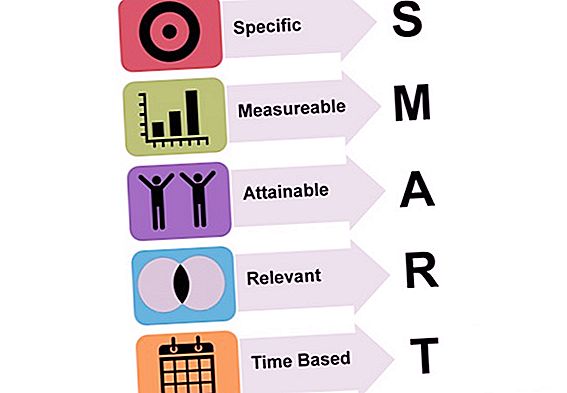The SMART technique (from the English smart - smart) is an abbreviation that includes 5 words that indicate the necessary signs of setting a goal. For the first time he described the methodology and explained each of the concepts included in it by J. Doran in 1981 in the article “There's a SMART way to write management's goals and objectives”.

S (SPECIFIC) - specific; the goal should be clear, specific. When setting goals, the result to be achieved must be clearly defined. Some authors interpret S as simple - "simple". This means that the goal should be clearly and simply formulated. Moreover, each goal is set separately, each result is worked out in the methodology on its own. If, analyzing a goal using the SMART method, you notice that it includes several goals, they need to be divided and worked out separately from each other.
M (MEASUREBLE) - measurable; each goal should have a quantitative indicator. Increase sales by 15%, run 3 km per day, write a certain number of articles by next year. It is necessary to determine the exact value of the desired result.
A (ACHIEVABLE) - attainable; the goal must be real, attainable. In some sources, it is attainable. You must work through all the options, evaluate your resources, determine the time that will be spent on solving the problem.
R (RELEVENT) - significant, relevant; it is necessary to determine whether the methods of achieving the goal, the standing and the necessary goal, are relevant. Determine if the plan created can solve the intended task.
T (TIME-BOUND) - time limited; the path to the goal should have its own framework. You must take a certain time to solve the problem, taking into account all the nuances and possession of the necessary resources. If there is no exact deadline for achieving the goal, then the result will be very difficult to achieve.
Sometimes the abbreviation SMARTER is used, where E - Evaluate and R - Reevaluate (to evaluate and revise) mean a constant adjustment of the plan taking into account changing circumstances.
